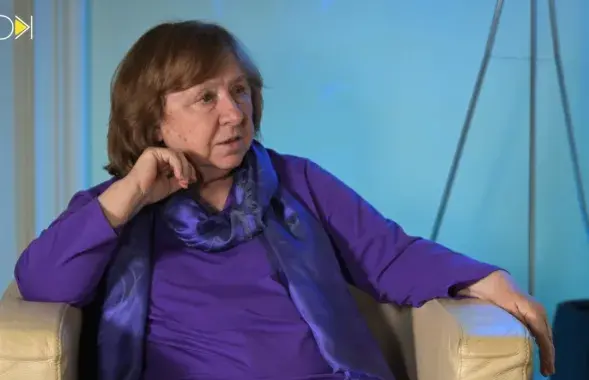Not allowed to describe prison food in letters
Prisoners are also forbidden to describe relations with the administration and their cellmates’ names.
Sentenced to death Uladzislau Kavalyou describes good living conditions, tasty food, good mood, expresses gratitude for parcels and asks about trivial family details in his letters. No complaints, nothing about his sentence. Euroradio has asked former prisoners what is allowed in prison letters.
Head of the United Civil Party Anatol Lyabedzka was in KGB prison from December 20, 2010 until April 6, 2011. His cellmates told him what was forbidden in letters.
Anatol Lyabedzka: “My cellmates told me that it was not allowed to write the names of cellmates and describe any details of the imprisonment”.

There was no “instruction” for prisoners listing the forbidden topics. Employees of the detention centre did not explain anything either. That is why prisoners did not know what had happened to most of their letters.
Anatol Lyabedzka: “They returned two letters to me - the reasons were highlighted in black pen”.
Lyabedzka wrote another letter to Attorney General Ryhor Vasilevich. The prisoner complained about visits of disguised people. “Special regime” was established for Lyabedzka in response to it.
According to Uladzimir Nyaklyayeu, he started writing letters in a copy-book after he had understood that all his attempts to contact the outer world were vain. Volha, the poet’s wife, received only one letter from him…
Uladzimir Nyaklyayeu: “... I wrote the letter after a conversation with the head of the detention centre. I told him that I lacked personal care items and could not even shave. He said: “I allow you to write about it. I will check if the letter reaches its destination”. There was only one everyday sentence not connected with shaving and they made me cross it out and write another letter”.

It is impossible to predict what can make the censor discontent. Mikita Lihavid says that censors can return your letter because of a phrase that did not cause any problems in the previous letter.
Mikita Lihavid: “Even those who have been imprisoned for a long time cannot predict what will be censored. They only know some of the criteria. There is a secret rule: nothing should be said about the things happening in the colony. There should be no information about food, prison events or relations with the administration. Such letters will not be censored. However, sometimes people got their letters back even though they were not connected with the topics at all”.
Mikita sent about 200 letters from prison. Only half of them reached their addressees. The others were not returned to him. They did not even explain what was wrong.
Pavel Sevyarynets serving his sentence in a penal labour camp has no censor. However, somebody reads all his letters – it can be guessed by the envelopes.
Conduct rules and prisoners’ duties are listed in special “regulations”. Lyabedzka and Nyaklyayeu say that they had them in their cells for a short time. They were removed later.
Valery Levaneuski, “expert” in prisoners’ rights, has mentioned only two things that are not allowed in letters. All the rest is cavil and the censor’s arbitrariness.
Valery Levaneuski: “You should not use bad language and describe everything connected with the imprisonment – the buildings, security guards and so on. All the rest can be censored. However, when it comes to political prisoners and pressure – such letters are not censored to create artificial isolation”.
According to him, censors should explain their remarks to prisoners and if they disagree, they can lodge an administrative appeal. That is why censors simply eliminate the letters they do not want to be sent and do not register them, claims Levaneuski.
Photo by: Zmitser Lukashuk, Euroradio
















